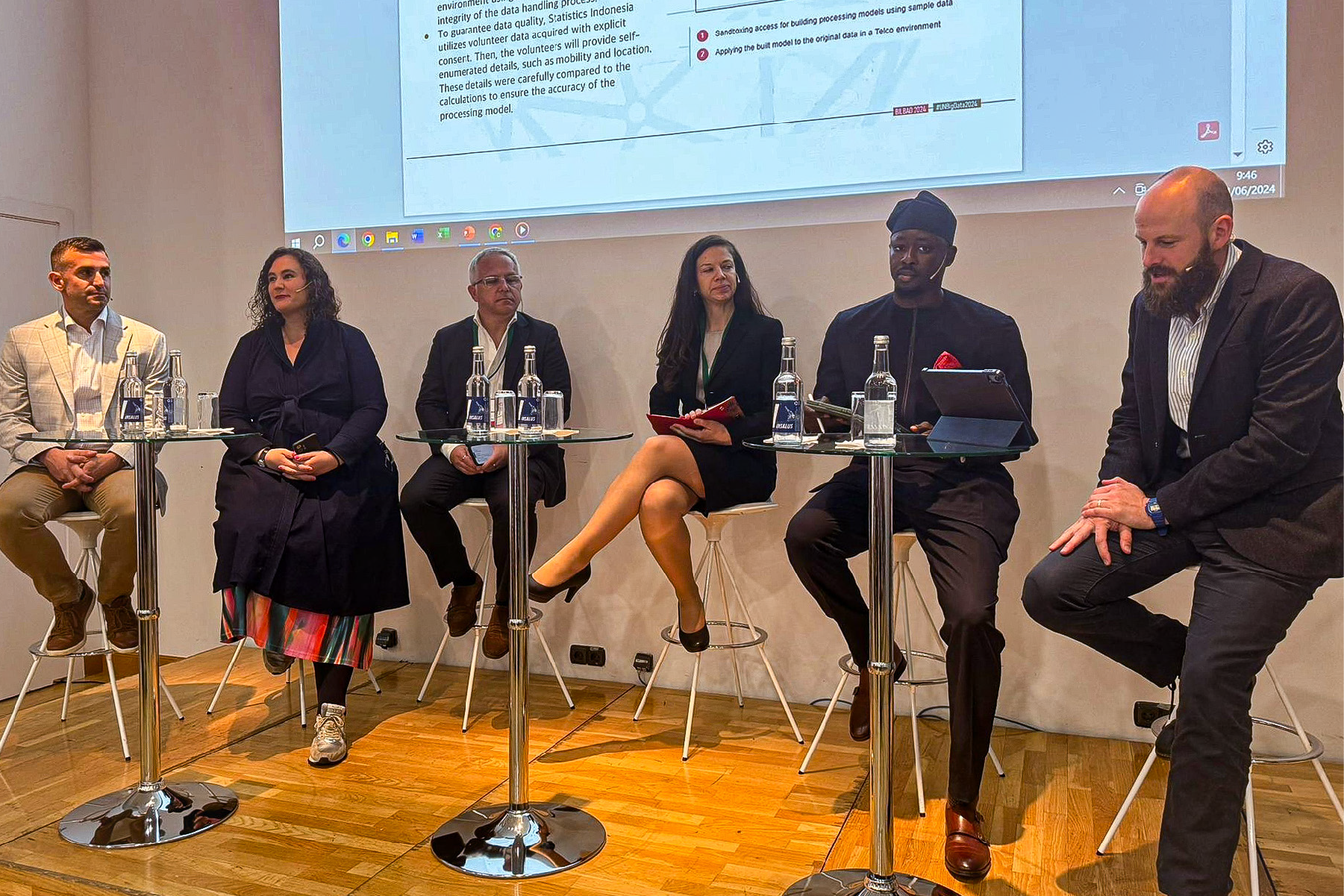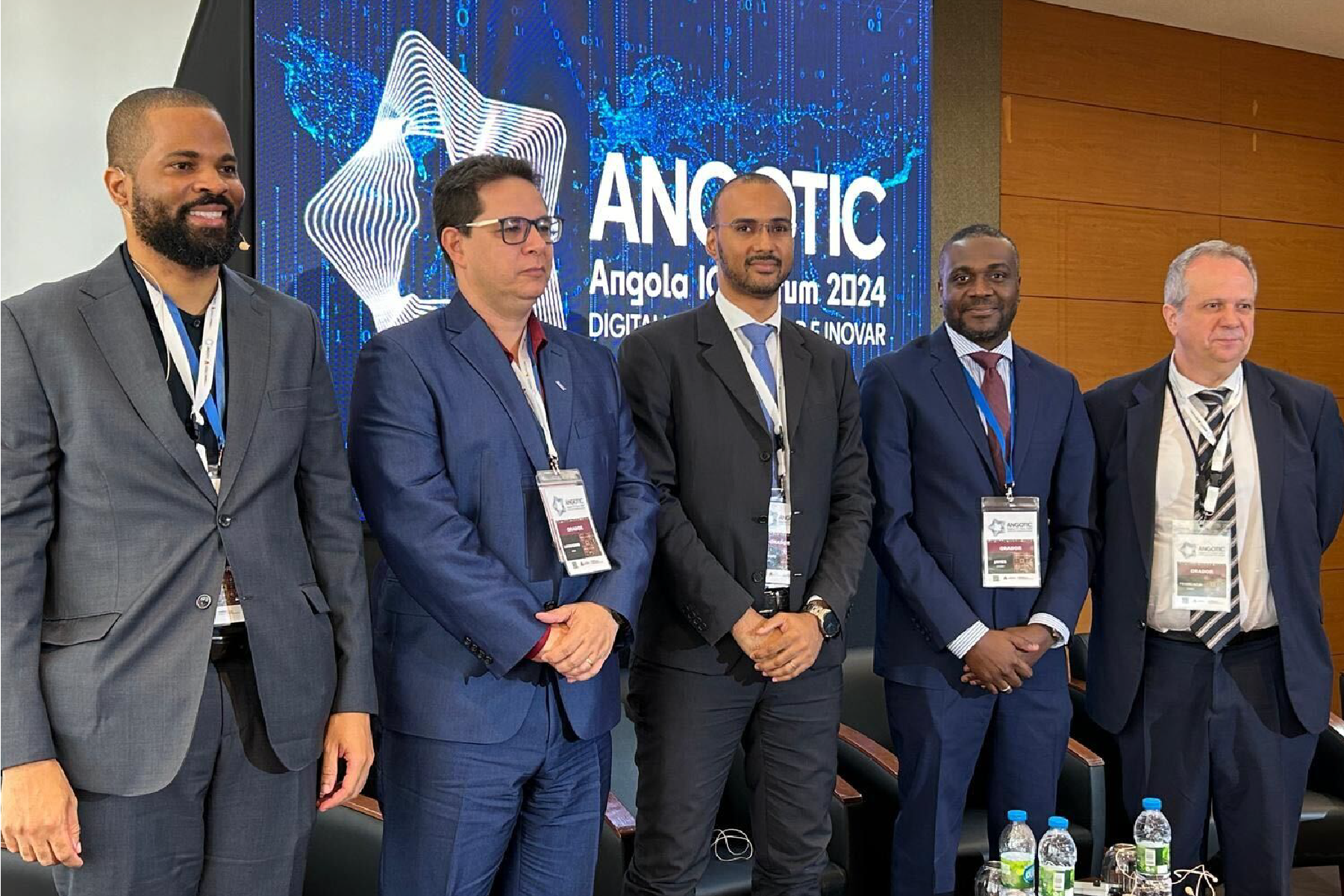
Leveraging MPD for policy, statistics and sustainability
In today’s digitally interconnected world, the pervasive use of mobile devices has led to vast amounts of data being exchanged on telecommunication networks. This data, which includes mobile positioning data (MPD), holds immense potential to drive innovation and foster sustainable development. Indeed, it provides the raw material for the creation of statistics that will inform effective development policies. The 8th International Conference on Big Data and Data Science for Official Statistics, which took place in Bilbao, Spain, from 10 until 14 June, focused on the use of integrated data to inform climate change and sustainable development policies. GVG’s CTO, Laurent Sarr, took part in the panel addressing the use of mobile phone Big Data for sustainable tourism, sharing insight on leveraging MPD for statistical purposes.
Monitoring the sustainability of tourism and human mobility using MPD
By providing real-time information about the location of mobile devices, MPD enables policymakers to gain valuable mobility intelligence. Such insights are crucial in a variety of domains where population movements have a significant impact, like crisis management. During the Covid-19 pandemic, for example, some countries, including Ghana, used technological tools leveraging MPD to track population movements and the spread of the virus.
Tourism management and planning is another crucial application of MPD. MPD has the potential to provide valuable insight into tourism-related trends by allowing the relevant authorities to track the movements of visitors in a specific country. As a result, it helps drive evidence-based decision-making and formulate targeted policies. Compared to more traditional data sources, such as tourism surveys, the advantages of MPD include improved granularity, accuracy, timeliness, and sampling coverage, according to a blog published by the UN’S World Data Forum.
Therefore, MPD can help rebuild the tourism sector, following the 2020 crisis due to the Covid-19 pandemic. That year, the number of visitors and the export revenue plummeted by 73% and 1.3 trillion USD respectively, says the UNWTO. The fact that three of the UNSDGs advocate fostering sustainable tourism testifies to the sector’s positive impact on development and makes its rebuilding all the more important.
However, limited access to MPD undermines its potential to foster the sustainability of tourism and human mobility. Laurent Sarr, GVG’s CTO, made this observation in the panel “Using Mobile Phone Big Data for Sustainable Tourism” of this year’s 8th International Conference on Big Data and Data Science for Official Statistics.
Leveraging MPD for statistical purposes: The role of the regulators
One of the factors limiting access to MPD is the concern regarding the security and ethical use of the data. Since MPD is generated by mobile devices, it is the responsibility of the MNOs. The latter must ensure that their customers’ data is processed in accordance with the data privacy laws in force.
Asked about the role of regulators in addressing the data access challenge, Laurent Sarr pointed out that this role is a pivotal and multifaceted one. Firstly, regulators are responsible for creating and updating the frameworks, policies and guidelines needed to ensure the safe and ethical use of MPD, thus alleviating the data security concerns. According to him, they act as a bridge between the MNOs and the government agencies and statistical offices. Indeed, by setting standards for data confidentiality and security, as well as for sharing protocols, they create an environment conducive to leveraging MPD while safeguarding individuals’ rights.
Secondly, regulators can promote other key aspects of MPD governance. Data interoperability and harmonization across diverse datasets, for example, enhance the accessibility and utility of MPD for statistical purposes. Regulatory frameworks could also mandate obtaining explicit consent from tourists before collecting MPD, as a way of fostering trust.
Thirdly, they facilitate effective collaboration with the different stakeholders. Collaboration between MNOs and the public sector is crucial to ensure secure data access. Furthermore, it supports the establishment of data management mechanisms governing the collection, storage, processing and sharing of data, to ensure transparency.
By improving access to MPD, regulators support countries in their decision-making processes. By doing so, they help promote the sustainability of tourism and human mobility, and therefore in driving sustainable development.
Leveraging MPD for statistical purposes: The role of technology
In addition to appropriate regulatory frameworks, regulators may also need to implement technological measures to support access to MPD for statistical purposes. Indeed, technology can connect the authorities directly to the sources of MPD. These include mobile telecommunications networks and relevant mobile transactions streams. Furthermore, it helps ensure that the data exchange is fully compliant with the data privacy laws in force.
As a provider of data monitoring platforms, GVG puts its technology at the service of regulatory authorities to leverage MPD. MPD is a critical resource when it comes to supporting decision-making in various critical areas, including mobility intelligence. Indeed, it allows for predictive analysis and emphasizing mobility trends.
When the Covid-19 pandemic struck, for example, the Ghanaian government, one of our already-existing clients, expressed the need to understand the spread of the disease. GVG’s Common Platform, which already collected data for revenue assurance purposes, was then upgraded to include the location of events. The mobility intelligence the platform gathered enabled the Ghanaian authorities to effectively predict and manage the spread of the disease. GVG ensured the privacy of the data by pseudonymizing and aggregating it as part of the process.
Realizing the full potential of MPD through collaboration
By supporting the creation of statistics, and therefore the policymaking process, MPD holds great promise in terms of sustainable development. The safe and seamless sharing of data however requires striking a delicate balance between innovation and privacy protection. Regulators and technology have an important role to play in that regard. Indeed, they help create an environment where the transformative potential of MPD in terms of development can be realized while safeguarding individual rights. As we navigate the complexities of the digital age, the collaborative efforts of regulators, industry stakeholders, and civil society are essential to harnessing the power of MPD for the benefit of all.
Would you like to read more about leveraging mobile data for statistical and policymaking purposes? Click here.

